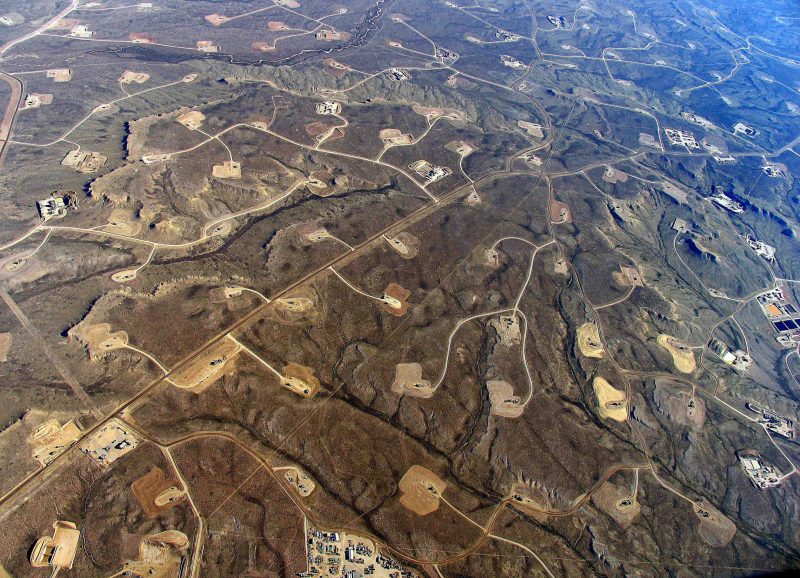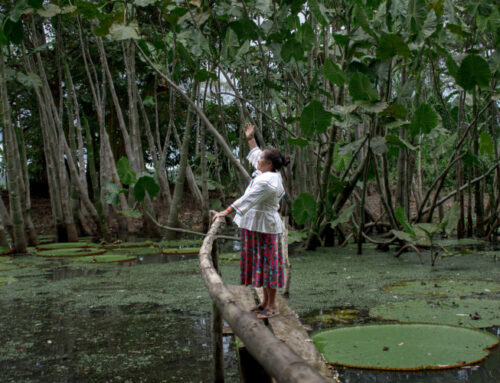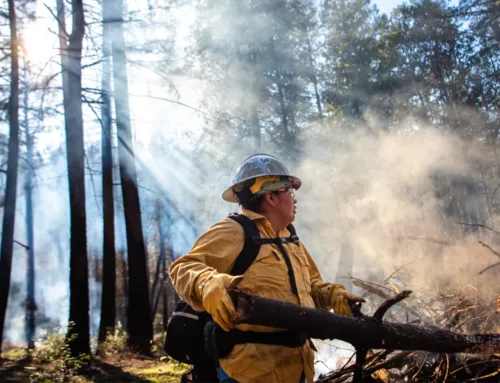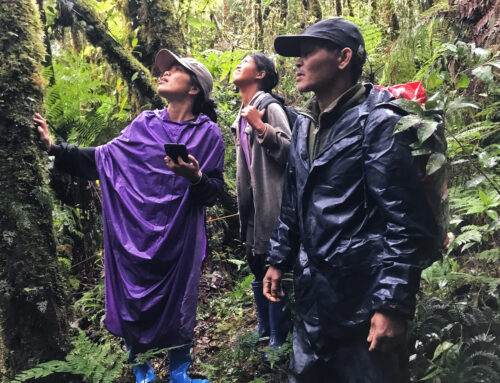Researchers at the Université of Montréal have found muconic acid levels in urine samples of women within close proximity of fracking sites in Northeastern British Columbia, Canada to be 3.5 times higher than amounts found in the general population. Benzene, which has been associated with reduced birth weight and increased risk of childhood leukemia and birth defects, is a contaminant that is often emitted while extracting waste gas from oil and gas sites. Nearly half of the participants tested were Indigenous, and the study concluded that muconic acid levels found in these women were 2.3 times higher than in the non-Indigenous participants and six times higher than levels found in the general population. While more research is needed to determine the source of the benzene, results are consistent with other studies on the impacts of fracking on women. Photo credit: Ecoflight







